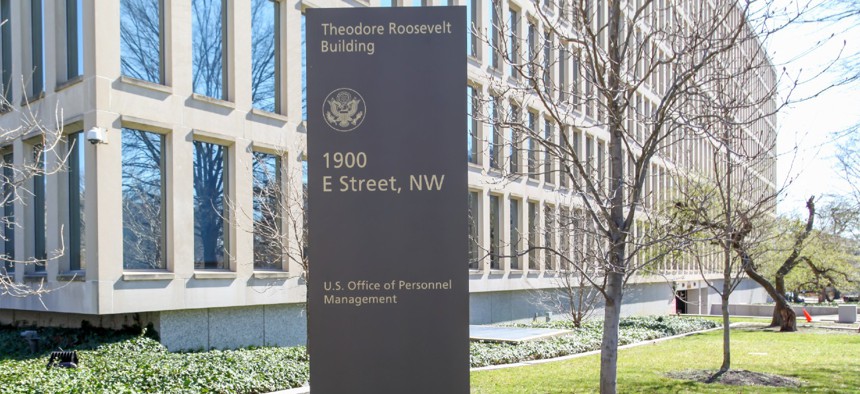
JHVEPhoto / iStock.com
House Panel Advances OPM Reform Legislation
Republicans opposed the bill aimed at insulating the Office of Personnel Management from political interference, arguing that doing so would lead to “unaccountable bureaucrats.”
The House Oversight and Reform Committee on Thursday voted 25-14 to advance to the House floor legislation aimed at reforming the Office of Personnel Management and protecting it from political interference.
The Strengthening the Office of Personnel Management Act (H.R. 6066), introduced last week by Reps. Gerry Connolly, D-Va., Carolyn Maloney, D-N.Y., and Brian Fitzpatrick, R-Pa., implements several recommendations made in a report from the National Academy of Public Administration on how to reform the federal government’s HR agency and make it a leader in federal human capital issues.
Borne out of the Trump administration’s abortive effort to dismantle OPM and send its functions to the General Services Administration and the Executive Office of the President, the bill would require the president to nominate an OPM director “without regard to political affiliation” and who has experience in human capital management. It would require the president to inform Congress 30 days in advance of firing the director. It also would establish the OPM director as the president’s “principal advisor” on federal workforce issues.
Additionally, the bill would create the position of OPM chief management officer and require that post to be filled by a career federal employee. It would also establish a 15-member federal advisory committee, made up of academics, HR professionals and federal employee groups, that would report to the OPM director on federal workforce issues.
“NAPA’s recommendations to Congress, the president and OPM address the challenges preventing OPM from serving as the go-to resource for federal human capital innovation, a stalwart of federal hiring flexibilities, training opportunities and retirement processing,” Connolly said Thursday. “The Strengthening the Office of Personnel Management Act will help establish OPM as the lead independent advocate for the expert civil service that our nation needs.”
But Republicans on the committee argued that the Trump administration’s efforts to dismantle OPM were “well intentioned,” despite the fact that those plans were criticized and eventually blocked on a bipartisan basis, and said the bill would infringe on the president’s ability to run the executive branch.
“Democrats’ latest proposal misses the mark on providing efficiency, effectiveness and political accountability,” said Rep. James Comer, R-Ky., the committee’s ranking member. “Instead of needed reform measures, it fosters more unaccountable bureaucracy and requires the nonpartisan appointment of the OPM director. That severs the OPM director from political accountability.”
Rep. Michael Cloud, R-Texas, went even further, suggesting that the president should have even greater authority to fire federal employees at will, describing the federal workforce as an unconstitutional “fourth branch” of government.
“For the entire executive branch, the authority flows from the people to the executive, and everyone in the executive branch should serve at the pleasure of the president,” Cloud said. “What we’ve seen time and time again is that the bureaucracy has become almost its own fourth branch of government. Knowing that they outlive the occupants of the White House or even our own positions, what we often see is certain reforms the American people are asking for and indeed vote for, they slow roll them in order for self-preservation of whatever agency they may be serving on.”
Connolly argued that setting guard rails for the president’s use of executive power—and management of the executive branch—is firmly within Congress’ purview, and has been done countless times, from the passage of the Pendleton Act, which ended the patronage system, to requiring nonpartisan appointment of technical agencies like the National Institutes of Health.
“I guess one of the Republican talking points is that anything that strengthens the independence and professionalization of our civilian workforce and the agencies they work for is an effort by the deep state to thwart the political will of a president,” he said. “I guess we have to have collective amnesia about the Constitution and the history of writing that constitution. Madison and Hamilton in the Federalist Papers made it clear why the powers both enumerated and implied with regard to the legislative branch were in Article 1, not Article 83. [Congress] is Article 1, while Article 2 lays out powers with respect to the executive branch for a reason. We get a say, too.”
The bill now heads to the House floor for consideration by the full chamber.







